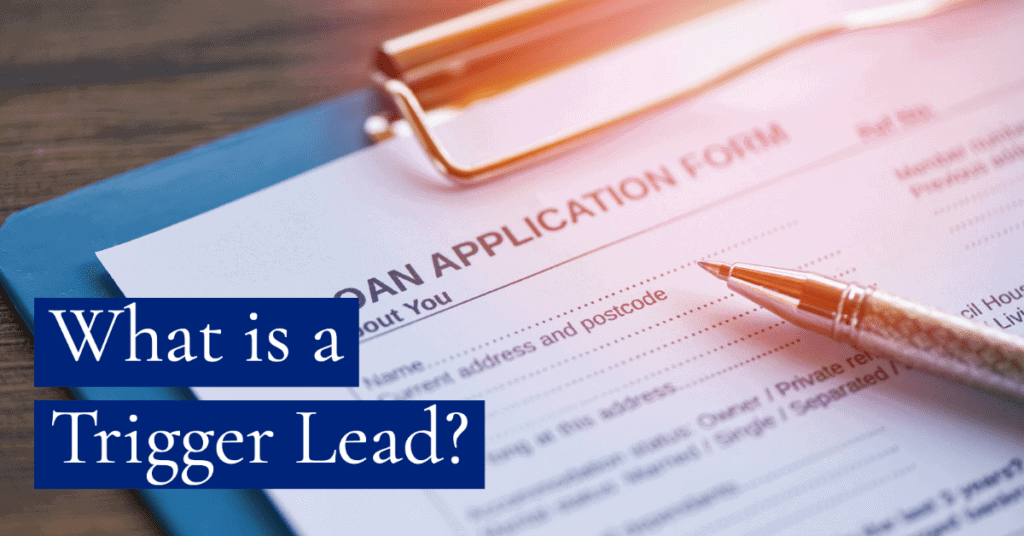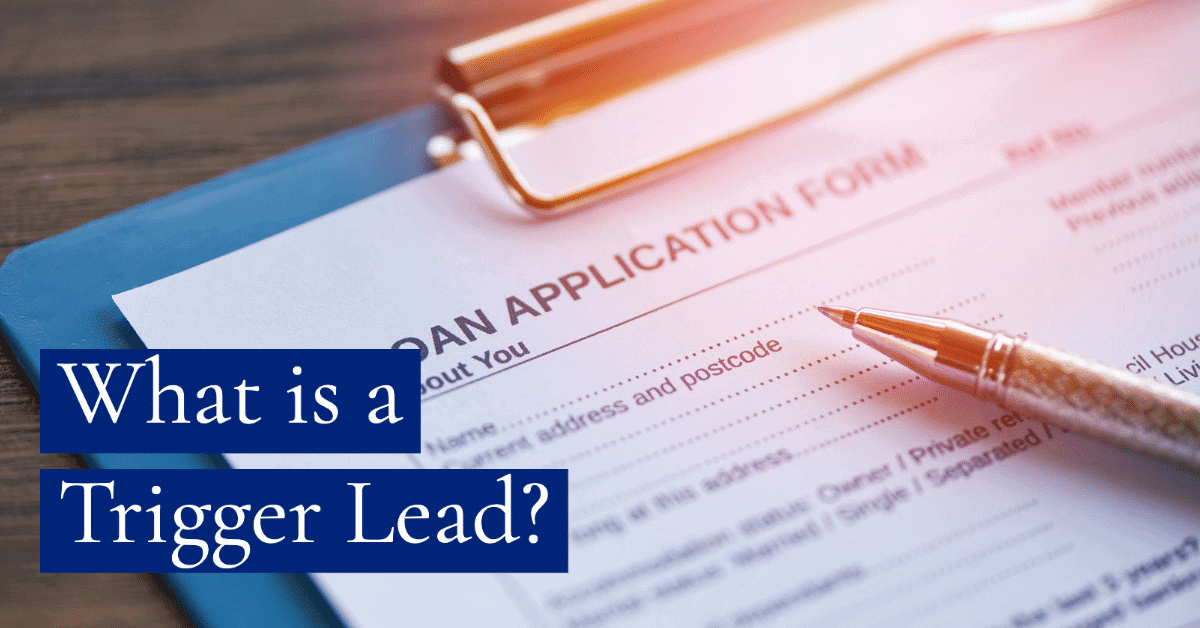
What is a Trigger Lead?
A trigger lead is a marketing product used by the major credit reporting bureaus. It is a lead that is generated when someone makes a major change in their credit report such as an address change. These leads are flagged and then sold to real estate agents, brokers, and lenders, who can use them to identify individuals who may be interested in buying or selling a home.
How does a trigger lead work?
A trigger lead occurs when a consumer makes a major change in their credit report. This change could include anything from opening or closing accounts to changing addresses, getting married, or filling out a loan application. When the bureau notices these changes, it will flag the lead and notify a real estate agent or lender that there may be an interested party looking to buy or sell a home.
Within 24 hours you may start to receive unsolicited calls, emails and letters from real estate professionals offering their services. Under the Fair Credit Reporting Act, these companies may directly market to these consumers in all 50 states, if they meet certain legal requirements. The FTC says that trigger leads are a legitimate type of marketing and helps consumers compare offers from different real estate professionals.
The National Association of Mortgage Brokers (NAMB) has said that trigger leads may open consumers to an increased risk of identity theft. Consumers should be aware that real estate professionals who purchase trigger leads may not have to follow all of the same federal privacy laws and regulations as those in the mortgage industry. Consumers are encouraged to research real estate professionals before engaging them and to only provide personal information to those that have a legitimate business purpose.
Are trigger leads legal?
Trigger leads are legal and have come under scrutiny in recent years. There are a number of concerns that have been raised with regards to their use, particularly since they rely on data collected by credit reporting bureaus. This data is often sensitive and its misuse or improper handling can lead to privacy issues.
Can I prevent trigger leads?
Unfortunately, it is not possible to completely prevent trigger leads from being generated. The data used to generate these leads is collected by credit bureaus and is out of the control of individuals. That said, there are some steps you can take to reduce your exposure to trigger lead marketing:
- Sign up at the National Do Not Call Registry to reduce unwanted telephone solicitations. It takes some time after registering to stop receiving unwanted calls, so it’s best to complete this step in advance of applying for loans or making major changes to your credit report.
- Sign up for DMAChoice to reduce unwanted junk mail and solicitations. This tool was originally created by the Direct Marketers Association and currently costs just $4 and covers you for 10 years.
- Register at OptOutPrescreen.com. Here , you can choose to opt out of certain types of pre-screened offers for credit, insurance, and other products with the 3 major credit bureaus (Equifax, Experian, and TransUnion). You can choose to opt-out for a period of five years using the online form or opt-out permanently by mailing in your request.
Are trigger leads worth it?
In theory, trigger leads are a valuable tool for both buyers and real estate professionals. They allow buyers to be proactive in their search for a new home and enable agents and lenders to target their marketing efforts more accurately. However, the reality is that many companies abuse the use of trigger leads and put consumers at risk.
Consumers should take steps to protect themselves and always do research when taking out any type of loan, and real estate professionals should ensure that the data collected through trigger leads is handled responsibly and securely.




